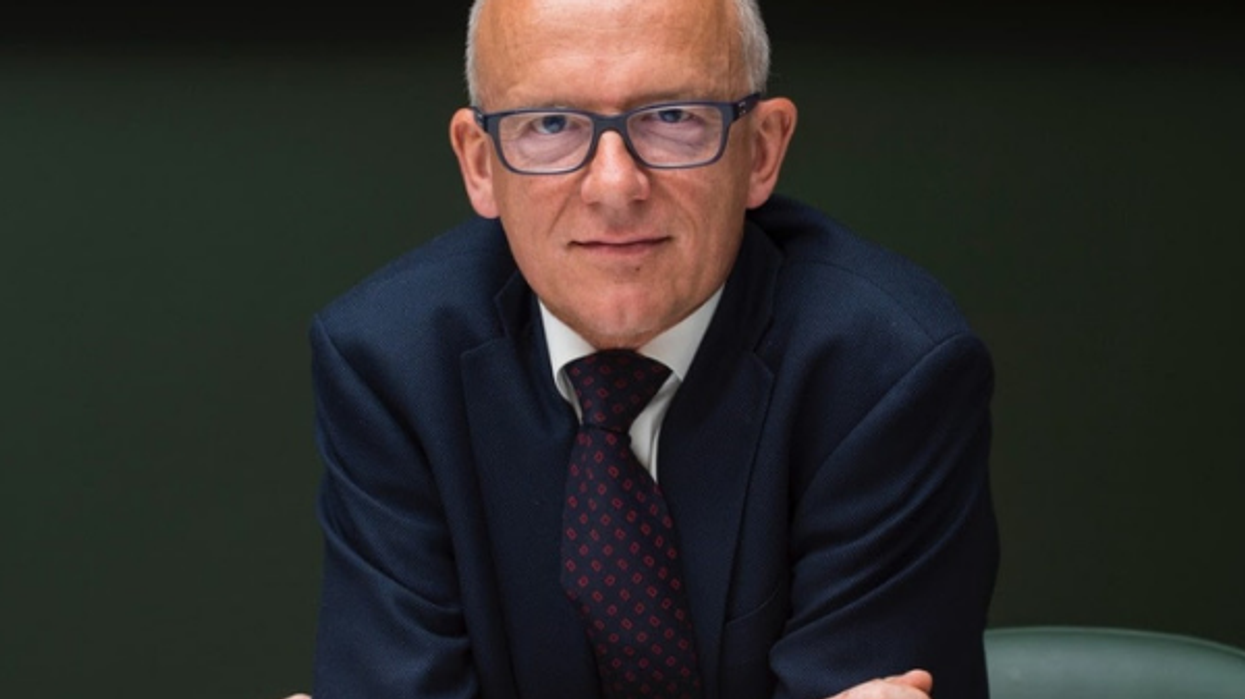BRITISH home secretary Priti Patel on Friday (8) announced the appointment of Sir Mark Rowley as the new commissioner of the Metropolitan Police Service.
Sir Rowley was formally appointed by Her Majesty the Queen following a recommendation from the home secretary, after a highly competitive recruitment process.
Sir Rowley QPM was the chief constable of Surrey Police between 2008 and 2011 before joining the Metropolitan Police Service. He was a former assistant commissioner for Specialist Crime and Operations of the Metropolitan Police Service (2011- 2014), and then the National Police Chiefs' Council Lead for Counter-Terrorism (2014- 2018). The man, who has over 30 years of experience in policing, was knighted in 2018 for his exceptional contribution to national security and national leadership at a time of unprecedented threat.
Representations from Sadiq Khan, mayor of London, were considered by the home secretary as part of this recommendation.
At a time when the government is investing record sums into policing, including supporting the recruitment of 20,000 additional police officers across England and Wales, the new commissioner will need to focus on getting the basics right, restoring confidence in policing, delivering on the Beating Crime Plan and making the capital’s streets safer.
“Sir Mark Rowley is a distinguished and exceptionally experienced police officer, having served the people of the West Midlands and Surrey before guiding the capital through some of its most challenging moments in the wake of the 2017 terror attacks, as the Met’s then head of counter-terrorism,” Patel said.
“He now takes on one of the most important and demanding jobs in policing, leading the country’s largest force at a time when public trust in the Metropolitan Police has been severely undermined by a number of significant failings. Rebuilding public trust and delivering on crime reduction must be his priority.
“This will be a challenging period, but with a focus on tackling neighbourhood crime and delivering the basics of policing, Sir Mark is committed to tackling the significant challenges confronting the force and to making London’s streets safer by driving down crime and bringing more criminals to justice.
“As the largest police force in the country, we have supported the Met to recruit 2,599 extra police officers and increased their annual policing budget to £3.24 billion in 2022-23. I look forward to working closely with Sir Mark to ensure this investment drives essential change to ensure the force delivers for the people of London.”
Responding to his appointment, Sir Rowley said, “I feel deeply honoured to be appointed to be the next Metropolitan Police Commissioner. Our mission is to lead the renewal of policing by consent which has been so heavily dented in recent years as trust and confidence have fallen.
“I am grateful that the Home Secretary and Mayor are both determined to support the urgent reforms we need to deliver successful community crimefighting in today’s fast-moving world. These reforms include our use of technology and data, our culture and our policing approach. We will fight crime with communities – not unilaterally dispense tactics.
“I also know that the majority of officers and staff retain an extraordinary sense of vocation and determination and want us to do better. It is my job to help them do that, whilst also being ruthless in removing those who are corrupting our integrity.
“We will deliver more trust, less crime and high standards for London and beyond and we will work with London’s diverse communities as we together renew the uniquely British invention of ‘policing by consent’.”
The date of Sir Rowley’s first day in the role will be confirmed in due course.
Khan said, “The home secretary and I have agreed that Sir Mark Rowley is the best person to lead the Metropolitan Police as the new Commissioner at this extremely challenging time.
“A series of appalling scandals have not only exposed deep cultural problems within the Met, but have contributed to a crisis of confidence in London’s police service. Sir Mark has made clear to me that he is determined to be a reforming Commissioner, committed to implementing a robust plan to rebuild trust and confidence in the police and to drive through the urgent reforms and step change in culture and performance Londoners deserve. As mayor, I will support and hold him to these promises as I continue to hold the Met to account.
“Sir Mark has demonstrated to me that he is the outstanding candidate for this role. He brings a wealth of great experience to the position, including exceptional leadership during the 2017 terror attacks and a genuine commitment to increasing engagement with diverse communities across our city.
“The experience he has gained outside policing over the last four years will also bring a valuable new perspective to the Met. Above all, he is committed to policing by consent and shares my ambition to get to a place where all Londoners feel protected and served, and where we have a police force that everyone – including the many brave and dedicated officers in our city – can be proud of.
“I look forward to supporting Sir Mark Rowley and working closely with the Home Secretary as we work to restore trust and confidence in the police, ensure that the Met gets the basics of policing right, and build on the significant success we have made in driving down violence and crime in our city.”
Acting Commissioner of the Metropolitan Police Service Sir Stephen House said, “I would like to congratulate Sir Mark Rowley QPM on his appointment as Commissioner of Police of the Metropolis.
“Anyone who knows Sir Mark will be aware that he brings extensive policing experience from both inside and outside London, which I have no doubt will benefit London and Londoners.”




